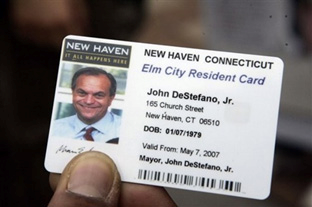There’s No Need for A Citizenship Question in the Next Census
The announcement by U.S. Secretary of Commerce Wilbur Ross that the 2020 Census will agree to the Justice Department’s request and add a question about citizenship is wrong on so many levels that it’s hard to track them all. The Constitutionally-mandated responsibility of the decennial census is to count all residents, regardless of citizenship, and actions that would interfere with doing that as thoroughly as possible undercut that grave responsibility.
A question about citizenship would discourage participation in the Census and lead to systematic undercounting of residents and an incomplete, biased picture of who lives in the United States. The consequences of such an undercount would be dire, skewing political representation and the allocation of federal funds. The undercount would affect immigrant communities of color in particular. For example, as the First Focus Campaign for Children put it, “For Hispanic children, the problem of being undercounted is exacerbated by a recent decision from the Department of Commerce to add a question on citizenship in the 2020 census. Coupling this announcement with aggressive and cruel immigration enforcement tactics currently being undertaken by the Trump administration, the expectation becomes a dramatically reduced participation rate from immigrant and mixed status families who fear the negative repercussions of revealing their immigration status.”
Advocates for an accurate, complete, and fair Census are used to raising their voices to push for more resources to be devoted to outreach, not to warding off bad, inflammatory proposals. But in reacting swiftly to this misguided and cynical step, they have the facts, the Constitution, and the nonpartisan importance of unbiased data on their side. There is no need for a citizenship question in the decadal Census to enforce the Voting Rights Act, as the Justice Department has claimed. There is great risk in adding an untested question at this late stage, jeopardizing years of preparation. We support the lawsuits being filed by several states and other parties and the movement to push Congress to reverse this plan.
For further information about these efforts, see the following sources:
- Politico: Reinstatement of a Citizenship Question on the 2020 Decennial Census Questionnaire
- First Focus: How the Citizenship Question in the 2020 Census Would Harm Children
- AP FACT CHECK: Trump officials strain truth on census change
- United States Census Bureau: Census in the Constitution
- The Urban Institute: Five reasons the addition of a citizenship question to the 2020 Census is detrimental to its goal
- The Census Project: Census Stakeholders React to Addition of a Citizenship Question to the Decennial Census
- Politico: States to sue Trump administration for adding citizenship question to U.S. Census
- NAACP: NAACP, PRINCE GEORGE’S COUNTY SUE OVER UNCONSTITUTIONAL CENSUS PREPARATIONS


